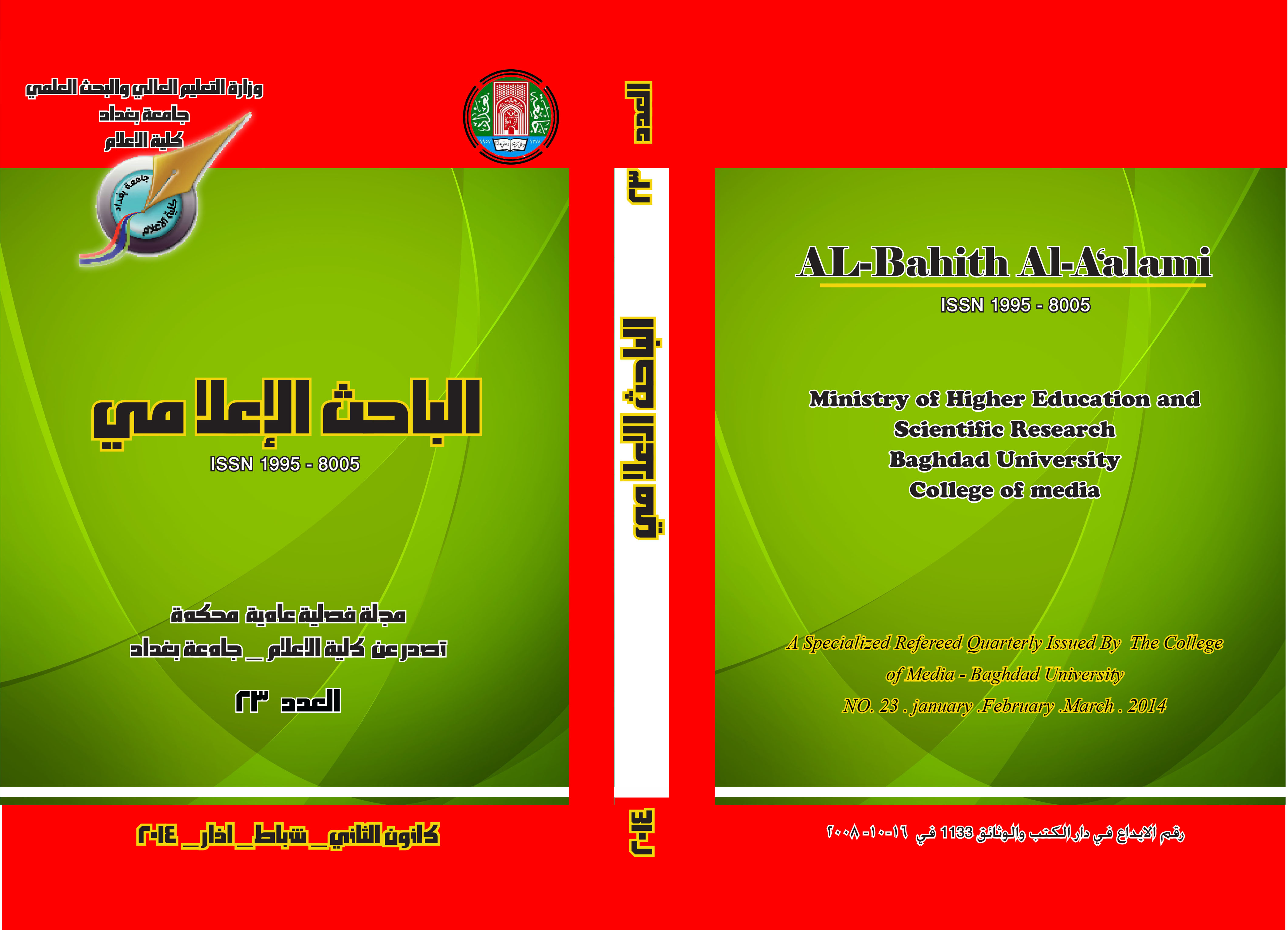The Role of Media Coverage of the Iraqi Satellite Channels in Shaping Public Attitudes towards Terrorism (a Field Study of a Sample of an Audience of the City of Baghdad)
DOI:
https://doi.org/10.33282/abaa.v6i23.291Keywords:
Press Coverage, Iraqi Satellite Channels, Public Attitudes Towards Terrorism, BaghdadAbstract
Violence is one of the most serious threats facing societies because it affects their internal structure and threatens the security and stability of society. It is classified as one of the types of security crises that are emerging in Arab and Islamic societies in particular, and in most countries of the world in general.
The threat of this crisis is increasing. Terrorism is considered as one of the most serious aspects of that all the countries of the world, currently, suffer from. The terrorism has begun to penetrate deep into society in one way or another starting from the Second World War, which led to the emergence of leftist movements in Western Europe, Japan, France, Italy and other countries as a result of emerging ideas and ideologies aimed at political change, especially with the end of the sixties of the twentieth century.
This period witnessed growing the phenomenon of terrorism; extending the impact of this phenomenon; and developing terrorist groups whose activities extended beyond their national borders. This led to an expansion of terrorism in what is known as international terrorism.
Terrorist attacks began to appear in Arab and Muslim societies from time to time. Therefore, the Arab world witnessed a growing phenomenon of violence and terrorism and the multiplicity of religious political violence organizations that differed from other violent currents in other regions of the world.
The risk of terrorist operations is greater if they originate from ideological or economic interests that serve a certain group, and whose influence on members of society widens so that innocent and protected lives are destroyed. This causes waste private and public property; and spreads terror and panic in the areas where they operate. Such terror activities lead to shaking security and stability and spread fear among individuals that left large numbers of innocent casualties.
Downloads
References
2 - حسن علوان، موضوعة الارهاب في الفضائيات العربية، اطروحة دكتوراه غير منشورة، الأكاديمية العربية المفتوحة في الدنمارك، 2008.
6- هويدا مصطفى، دور الفضائيات العربية في تشكيل معارف الجمهور واتجاهاته نحو الإرهاب. اتحاد إذاعات الدول العربية، سلسلة بحوث ودراسات إذاعية، 63، تونس، 2008.
7- السيد بهنسي حسن .استخدام نموذج الاهتمام ودوافع المشاهدة في اتخاذ القرارات الخاصة بتقييم موضوعات برامج الأطفال في التلفزيون المصري، مؤتمر الطفل المصري بين الخطر والأمان ، جامعة عين شمس ، 1995 .
8- . جان ميران كرم. الاعلام العربي الى القرن الحادي والعشرين ، دار الجيل بيروت ، 2002 .
9- حسن السوداني : أثر العرض البصري القائم على خصائص الصورة التعليمية التلفزيونية في عملية التعرف لدى طلبة كلية الفنون الجميلة : رسالة دكتوراه غير منشورة – جامعة بغداد ، 1996.
7- ملفين ل. ديفلير، ساندرا بول روكيتش، نظريات وسائل الإعلام، ترجمة: كمال عبد الرؤوف، القاهرة، الدار الدولية للنشر والتوزيع، 1994.
8- نزها الخوري، أثر التلفزيون في تربية المراهقين، دار الفكر اللبناني، بيروت، 1997.
9- محمد شومان. إشكاليات في مسار تطور إعلام الأزمات والكوارث. المجلة المصرية لبحوث الرأي العام. كليةالإعلام، جامعة القاهرة، العدد الثالث، 2001.
Downloads
Issue
Section
License
Authors retain copyright and grant the journal right of first publication with the work simultaneously licensed under a Creative Commons Attribution License (CC BY 4.0) that allows sharing the work with recognition of authorship and initial publication in ABBA journal.


















